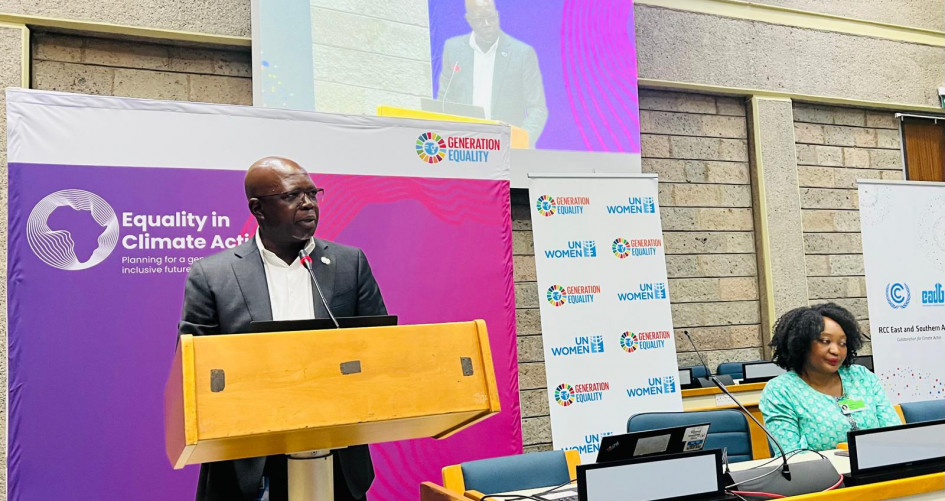Background
Climate change in East and Southern Africa has accelerated and intensified into widespread and interlinked environmental, social, and economic crises such as biodiversity loss and ecosystems degradation, loss of lives and livelihoods, migration, natural resource-based conflicts. Climate change drivers and impacts are not gender neutral.1 UN Women’s studies underscore that women are not only affected by climate change differently than men, but they can contribute to climate change action in a different manner. The various reproductive and productive responsibilities that women undertake at both household and community levels, such as their roles in agriculture, energy provision, cooking, and the management of water, sanitation, and waste, increase their susceptibility to the effects of climate change. During extreme weather events, the labour responsibilities – usually unpaid - of rural women exceed that of men, women as primary producers and agricultural workers work harder to secure income forcing girls to leave school to help with chores2 . Additionally, women are frequently tasked with ensuring the food security of their families, a challenge that becomes more demanding in regions prone to drought.
Objectives
UN Women, RCC East and Southern Africa, and UNDP will host a three-day regional workshop to inform national and global level planning processes on the climate agenda. This workshop aims to bring together UNFCCC National Gender and Climate Change Focal Points12 and key government actors from East and 12 Southern African as well as some members of civil society organizations to exchange best practices and strategies for integrating gender considerations into climate action initiatives.
The three-day capacity development, sharing and learning event will provide opportunity to engage and discuss with stakeholders to further the climate change conversation, build to the climate change engagements, share their experiences on NDCs, NAPs, gender and climate finance, National Gender and Climate Change Action Plans, global climate negotiations and national preparatory processes to allow countries to engage better with the ministries for follow-up during in-country discussions.
The event will also facilitate a long-term collaboration amongst regional stakeholders with the aim of identifying problems, using data and predictive methods. The main expected outcome is a way forward on future GAP activities to support prioritization and national level implementation.

